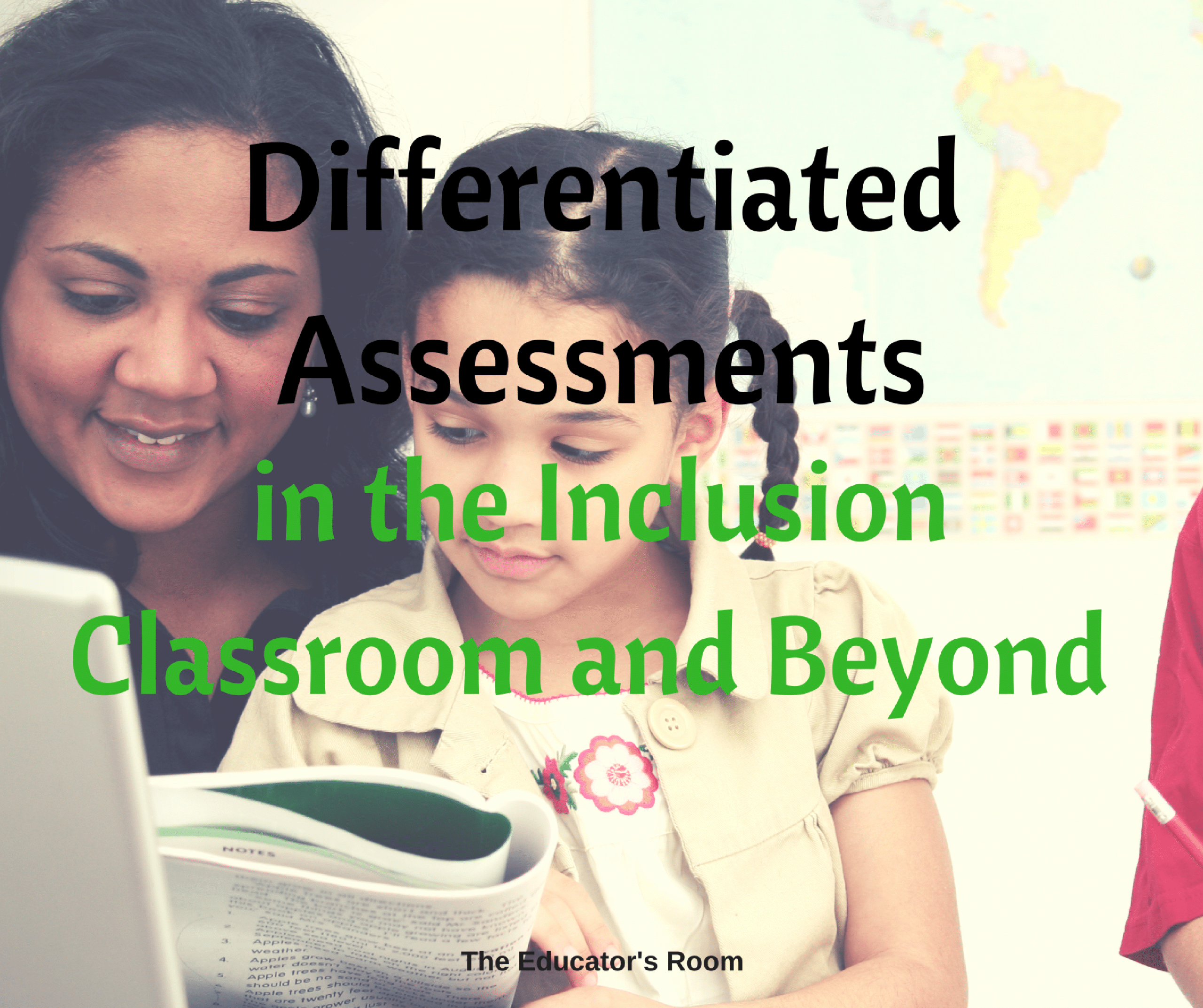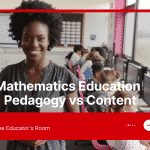A great way to begin a discussion on differentiated assessments is to answer, “What does the word assessment mean to you?” This question holds a lot of meaning for a lot of different people. For some teachers, assessment means giving students quizzes and tests. For others, it means much more. In order to determine how to differentiate assessments for all students, it’s important to understand that an assessment should not just happen at the end of the unit. Good assessments include pre-assessments, formative assessments, and summative assessments and these assessments all inform instruction.
Begin With the End in Mind
According to Wormeli (2006), author of Fair Isn’t Always Equal: Assessing and Grading for the Differentiated Classroom, the teacher should begin with the end in mind. Namely, summative assessments and what we deem essential standards for student learning should drive instruction. Before even creating the first unit lesson, the culminating project or test should be created so that teachers can adequately prepare students for the assessments (Wormeli). Once we get that summative assessment created, students should receive pre-assessments and multiple formative assessments in order to adequately prepare lessons that meet the individual needs of the students.
It’s NOT a “Gotcha” Game
The most important thing to remember about assessments, in my mind, is that they should not be a “gotcha” game. I know many teachers who give pop quizzes and throw things on summative assessments that students “should” know if they paid attention in class. They pride themselves on “catching” the students who don’t pay attention, but this is basically punishing students with a major grade, and it’s not fair to anyone. It certainly doesn’t help drive differentiated instruction that enables all students to learn. So, what are the assessments essential to driving differentiated instruction?
[fusion_builder_container hundred_percent=”yes” overflow=”visible”][fusion_builder_row][fusion_builder_column type=”1_1″ background_position=”left top” background_color=”” border_size=”” border_color=”” border_style=”solid” spacing=”yes” background_image=”” background_repeat=”no-repeat” padding=”” margin_top=”0px” margin_bottom=”0px” class=”” id=”” animation_type=”” animation_speed=”0.3″ animation_direction=”left” hide_on_mobile=”no” center_content=”no” min_height=”none”][bctt tweet=”Assessments should not be a “gotcha” game. ” username=”EducatorsRoom”]
Types of Assessments
- Pre-assessments. In order to design a lesson that truly helps students learn from where they are, pre-assessments are important indicators of student readiness for a topic. Ensuring that these assessments contain the essential standards the student must know and learn for the unit is vital. After lessons are designed around these assessments, frequent assessing is important. That leads to the next type of assessment.
- Formative assessments. Wormeli (2006) calls these “en route checkpoints” for students, and they must be done frequently. Formative assessments help teachers see where students are with regards to the essential standards and where to go from there.
- Summative assessments. At the end of the unit of learning, students take a summative assessment that match the objectives and essential standards the students must know in order to demonstrate mastery.
Differentiated Assessment Methods
With any one of these assessments, teachers have the opportunity to get creative with how students demonstrate mastery. Instead of just giving students multiple-choice, fill-in-the-blank, or essay tests, the way in which students are assessed can be differentiated so that any disability the student might have can be bypassed and learning can be gauged appropriately. Here are some different ways in which teachers can help students demonstrate learning.
- Cubing: Here, students can be provided with a three-dimensional cube made out of foam or cardboard with a variety of questions scaling up Bloom’s taxonomy (Wormeli, 2006). One side might contain a question that demonstrates knowledge, where students can remember and recite the content they remember. One side demonstrates comprehension, where students show how they understand the concept. Yet another side might have students use application by using what they know in a different situation. The fourth side would contain an analysis question, where students break down and then analyze the concept as a whole. The fifth side would allow students to synthesize information by connecting contradictory topics and forming new concepts. The last side would allow students to evaluate by taking a specific criteria and judging the validity or success of the criteria for a concept. Students can roll the cube and answer three questions from the cube successfully in order to demonstrate mastery.
- RAFT(S). With this assessment, students can choose the role, audience, format, topic/time, and, if deemed necessary, “strong verbs” that students must include. Since students can choose one piece from each part of the RAFT(S) rubric, the assessment is differentiated based on student interest and ability. Here is an example:
| Role | Audience | Format | Topic | Strong Verb |
| A young male living in poverty. | The governor of North Carolina. | A letter. | Percent of Students Living in Poverty with Enjoy Sports | Argue against decreasing the athletics budget using a percent equation. |
| Dr. Martin Luther King, Jr. | Members of the Ku Klux Klan | A speech. | The cost of bus fare for black people versus white people. | Develop an equation demonstrating how much more expensive it is for minority groups to utilize public services. |
| Your teacher | The Principal | Video-taped monologue | The importance of standards-based hands-on activities for student learning. | Defend activities by constructing inequalities to show upward or downward trends in learning. |
| A poet | The young author’s society | Poem | Real-life situations using equations | Generate a poem that describes the importance of equations |
- Using $2.00 summaries. Put the value at ten cents per word and have students provide a $2.00 summary of the topics covered in class that day. You can increase or decrease the price depending on how much you want the students to write.
[bctt tweet=”Remember when designing differentiated assessments that “fair isn’t always equal.” ” username=”EducatorsRoom”]
What’s Most Important When Developing Assessments?
As Wormeli (2006) asserts, assessments are most productive and appropriate when students are provided with materials that are not only developmentally appropriate, but cover the essential standards. The types of questions and how they are worded can vary depending on the student, but the challenge with differentiation is ensuring that students also demonstrate competency with the essential standards. There is nothing wrong with occasional multiple-choice tests just as long as students are taught the skills to answer the questions. Always keep in mind what deficits might get in the way of students completing a summative assessment and help them work around it so that you are testing the ability of the student with your content area, not with their disability. And if you haven’t read Wormeli’s book, it’s an excellent source of information on how to differentiate assessments with finesse. I did receive a copy of this book in exchange for an honest review, but I honestly could not put the book down when I began reading it. Just remember when you’re assessing your students that “Fair Isn’t Always Equal” and that sometimes means that some students demonstrate learning in different ways than others.
Reference:
Wormeli, R. (2006). Fair Isn’t Always Equal: Assessing and Grading in the Differentiated Classroom. Stenhouse Publishers: Portland, ME.

[/fusion_builder_column][/fusion_builder_row][/fusion_builder_container]






Very nice article. I definitely appreciate this website. Thanks!
https://spatialgist.com/forums/users/dian420790706/